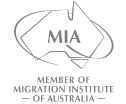Navigating Australia’s skilled migration pathway requires precise financial planning, especially for the Subclass 190 State-Nominated Visa. This 2025 analysis examines both federal charges and state-specific fees across New South Wales (NSW) and Victoria (VIC), providing skilled professionals with accurate budgeting frameworks. From base application charges to hidden ancillary costs, we detail every component to prevent budgetary surprises during your migration journey.
Federal Government Visa Charges
The Department of Home Affairs mandates standardized fees regardless of nominating state:
- Primary applicant: AUD 4,115 [3][4]
- Adult dependent (18+ years): AUD 2,055 per person
- Child dependent (under 18): AUD 1,030 per child
These non-negotiable charges form the baseline of your application budget. Unlike temporary visas, these fees grant permanent residency upon approval.
State-Specific Nomination Fees
State nomination costs diverge significantly between NSW and VIC:
| Cost Component | NSW | Victoria |
|---|---|---|
| Nomination Fee | AUD 300 [3] | AUD 415 [3] |
| Processing Time | 6-12 months [4] | 6-9 months (industry avg) |
| Residency Requirement | 6 months in NSW or offshore [2] | No prior residency mandated |
Victoria maintains no formal residency prerequisite but prioritizes candidates demonstrating genuine commitment to the state through employment prospects or regional connections. NSW enforces stricter residency proof but offers faster processing for international healthcare and tech professionals through specialized pathways.
Ancillary Cost Considerations
Beyond core fees, budget for these mandatory expenditures:
- Skills assessment: AUD 500–1,200 (occupation-dependent)
- English language testing: AUD 400–500 (IELTS/PTE)
- Medical examinations: AUD 350–500 per person
- Police clearances: AUD 42–150 per country of residence
Proactive applicants should allocate AUD 2,000–3,000 for these supplementary requirements, which aren’t included in the base visa charges.
Comparative Financial Planning: NSW vs. VIC
Consider these state-specific financial planning factors:
- NSW Budget Tip: The AUD 300 nomination fee is non-refundable if invitation isn’t secured. Maintain liquid funds for potential reapplication [2].
- VIC Budget Advantage: Lower nomination fees offset Victoria’s higher cost-of-living expenses, particularly in Melbourne.
- Hidden NSW Cost: Interstate applicants must budget for relocation costs to satisfy the 6-month residency requirement before nomination eligibility [2].
- VIC Priority Sectors: Engineering and advanced manufacturing nominees often receive expedited processing, reducing temporary accommodation costs.
Strategic Budget Optimization
Implement these evidence-backed strategies:
- Phase-dependent funding: Stagger payments across EOI, nomination, and visa stages to improve cash flow [1]
- Dependent timing: Add non-migrating dependents post-principal approval to avoid duplicate application fees [3]
- Currency hedging: Lock in AUD conversion rates during document preparation phases to mitigate forex fluctuations
- Contingency reserves: Allocate 15% above calculated totals for medical re-tests or document revisions [1]
State agencies periodically revise nomination fees. Subscribe to NSW’s Skills List Updates and Victoria’s Live in Melbourne Portal for mid-year adjustment alerts.
Final Budget Projections
Typical total costs for common household configurations:
| Family Composition | NSW Total | Victoria Total |
|---|---|---|
| Single applicant | AUD 6,200–7,500 | AUD 6,300–7,600 |
| Couple (no children) | AUD 9,300–11,000 | AUD 9,400–11,200 |
| Family of four | AUD 12,100–14,500 | AUD 12,300–14,800 |
These projections include all federal, state, and ancillary costs but exclude migration agent fees. Professionals navigating complex cases should budget AUD 2,000–5,000 for registered migration assistance to avoid costly application errors.
Successful applicants should monitor the Home Affairs Visa Pricing Table quarterly, as federal charges typically increase every July. State nomination fees remain stable but can change with 30 days’ notice.










